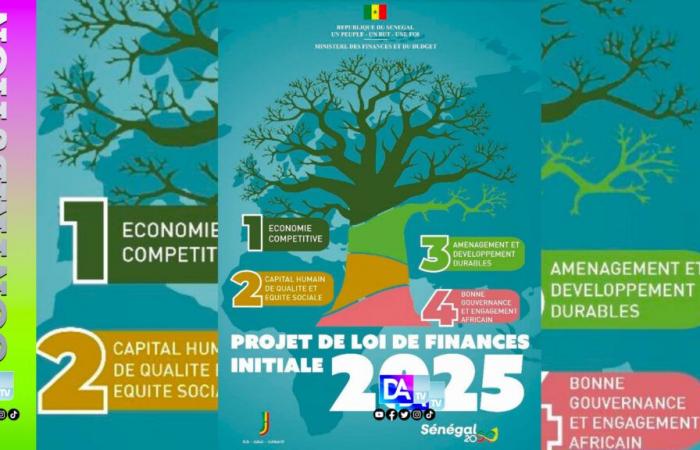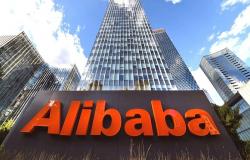The operationalization of Senegal's National Development Strategy (SND) 2025-2029 is based on the 2025 Finance Bill, which constitutes the budgetary and financial framework allowing national priorities to be achieved. Inspired by the philosophy of Jub Jubbal Jubbanti, this strategy is structured around three essential principles: “Jub”, meaning “fair”, “Jubbal”, which implies “adjust” or “make fair”, and “Jubbanti”, synonym to “rectify”. These concepts reflect the ambition to build equitable economic governance, correct structural imbalances and adjust national priorities according to economic and social needs.
Budget management is based on revenues projected at 4,794.64 billion FCFA and public expenditure estimated at 6,395.08 billion FCFA, with an objective of gradually reducing the budget deficit to 3% of GDP by 2027. This approach reflects a desire to break with previous budgetary imbalances by establishing rigorous and transparent public management. The broadening of the tax base, combined with the modernization of tax administration and the digitalization of public services, aims to increase the mobilization of domestic resources and strengthen the economic sovereignty of the country.
Budget allocations reflect strategic choices guided by fundamental economic and social priorities. Education and vocational training benefit from an envelope of 1,377 billion FCFA, which marks the ambition to increase the school enrollment rate to 100% by 2029. Targeted investments concern the modernization of school infrastructure, the training of teachers and the development of technical sectors adapted to the needs of the labor market. This allocation aims to create a qualified generation, capable of supporting the industrial transformation of Senegal.
In the area of health and social protection, 1,885 billion FCFA are allocated to strengthen universal health coverage and improve health infrastructure. The main objective is to ensure equitable access to quality health services for 80% of the population by 2029. These funds will help build new hospitals, modernize existing health centers and recruit qualified medical personnel .
Agriculture, fishing and livestock, pillars of food security and the national economy, receive 1,070 billion FCFA. This budget supports agricultural mechanization, modernization of irrigation infrastructure and the development of agro-industrial value chains. The objective is to achieve food self-sufficiency and ensure greater resilience in the face of climate crises. Targeted subsidies are provided to support small farmers and promote sustainable agriculture.
Infrastructure and energy constitute a central axis of economic development. The modernization and restructuring of SENELEC into a holding company, the development of competitive industrial centers, and the integration of renewable energies aim to reduce production costs and ensure a stable energy supply. These investments must transform aging infrastructure and position Senegal as a competitive regional industrial hub.
The security and defense aspect also benefits from significant investments. The government plans to strengthen the operational capacities of internal security and national defense forces through the acquisition of new equipment and the development of security infrastructure. Funds are allocated for cybersecurity, maritime surveillance and border protection to ensure the stability of the country and the security of foreign investments.
Public governance constitutes another fundamental pillar, with an emphasis on decentralization, budgetary transparency and the fight against corruption. Investments aim to modernize administrative management through digitalization and the simplification of public procedures. The objective is to improve citizens' access to essential services while strengthening the accountability of public institutions.
On the economic level, regional integration occupies a strategic place. Senegal plans to strengthen its exports to 30% of GDP, by actively participating in the African Continental Free Trade Area (AfCFTA). This approach aims to diversify export markets and reduce dependence on imports. The development of logistics corridors and port platforms supports this dynamic to position the country as a major economic gateway to West Africa.
To finance these structuring projects, Senegal is adopting a strategy of prudent management of public debt, set at 59.7% of GDP in 2025. Innovative financial mechanisms, such as “Diaspora Bonds” and Public-Private Partnerships (PPP ), will make it possible to diversify sources of financing and limit the use of costly external borrowing. These mechanisms guarantee optimal mobilization of national and international resources, while reducing pressure on public finances.
Finally, the exploitation of hydrocarbons, a potential driver of economic transformation, is the subject of a rigorous management policy. The government plans to maximize economic benefits through favorable contractual frameworks and adapted industrial policies. These projects must stimulate long-term growth, promote the creation of qualified jobs and strengthen local industrial capacities.
Overall, the 2025 Finance Bill constitutes a strategic instrument for implementing the SND 2025-2029. Each budget allocation reflects the commitment to making public management fairer (Jub), to adjusting economic and social priorities according to national needs (Jubbal), and to rectifying structural imbalances that hinder development (Jubbanti). This integrated approach, based on rigorous budgetary management and profound economic reforms, positions Senegal on the path to sustainable, inclusive and sovereign development.
Dr. Abdourahmane Ba
Statistical Engineer, Expert in Public Policy Evaluation
President of the ESSOR movement.






